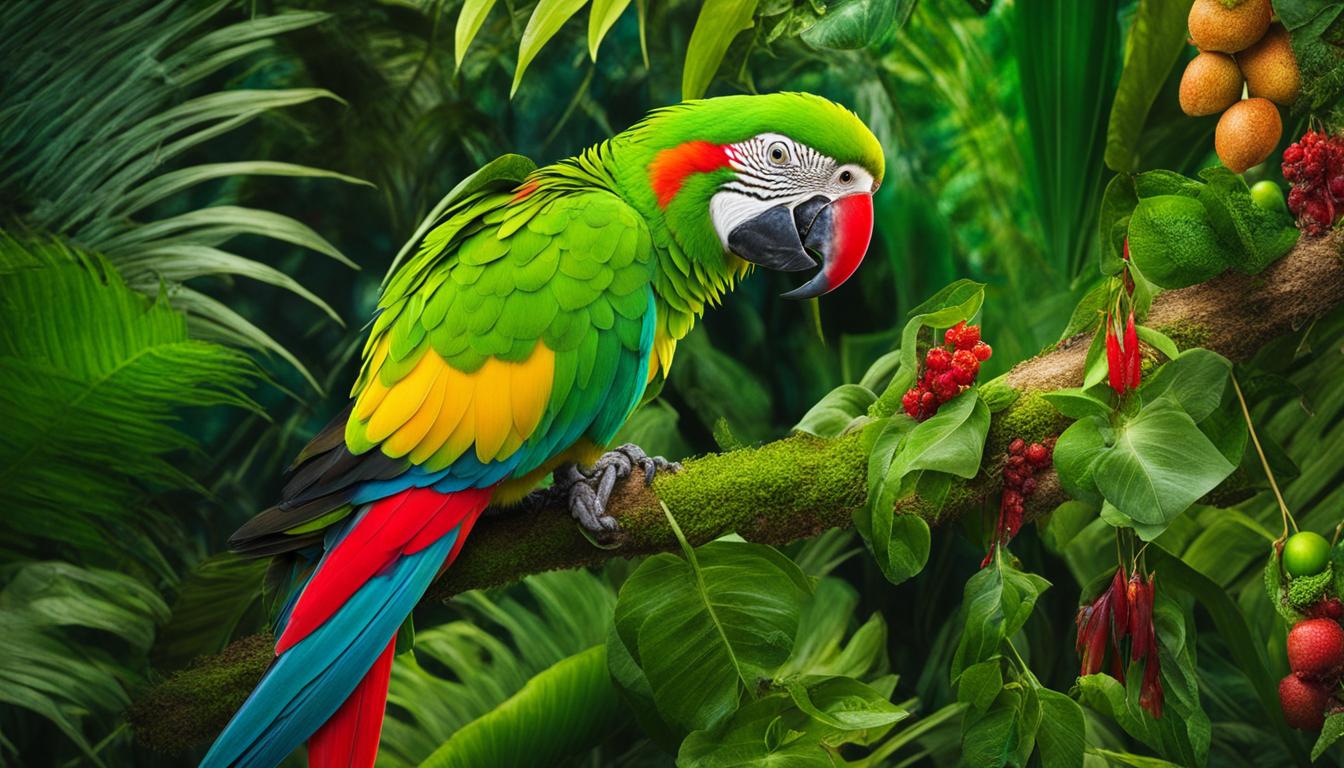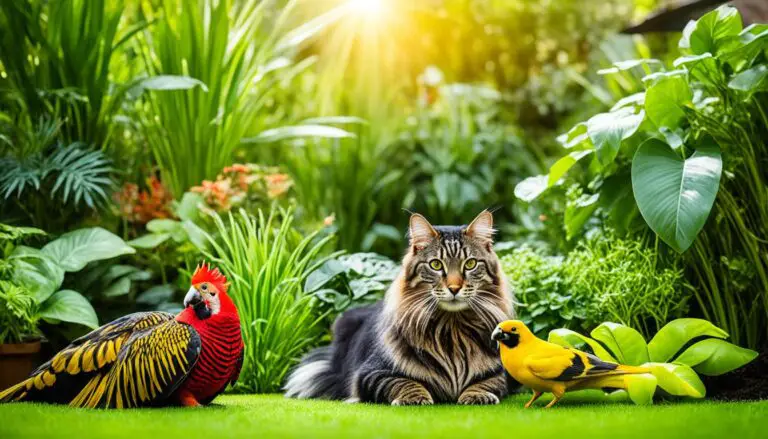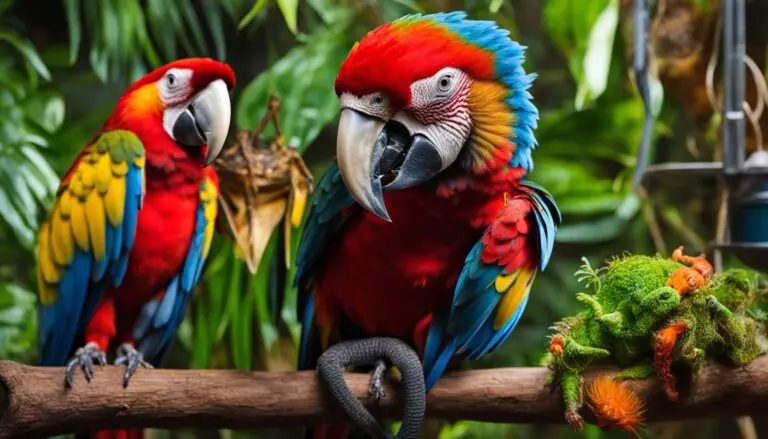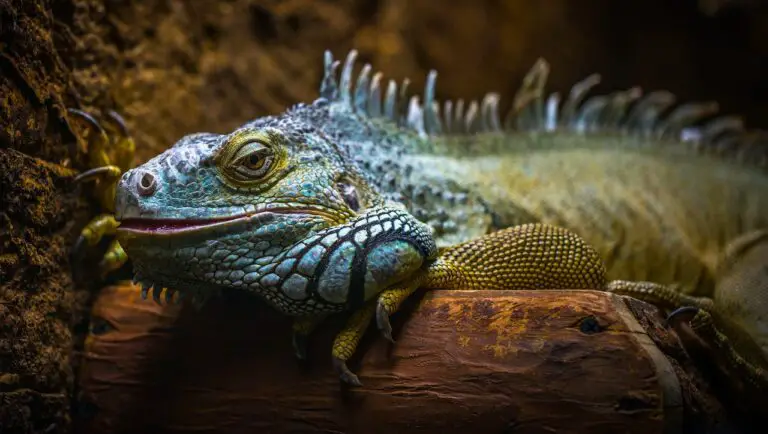Exotic Pet Care Essentials for Healthy Companions
Welcome to our guide on exotic pet care essentials! Whether you already own an exotic pet or are considering bringing one into your home, it’s important to understand the unique needs and best practices for their care. Exotic pets require specialized attention to ensure they lead healthy and fulfilling lives.
Proper research and education are key when it comes to exotic pet care. Understanding the specific needs of your pet species is crucial for creating a suitable habitat and providing the right nutrition. Regular veterinary check-ups and mental stimulation are also vital for their well-being.
Are you ready to learn more about how to care for your exotic pets? Read on for expert tips and essential supplies to keep your animal companions happy and healthy.
Key Takeaways:
- Exotic pet care requires thorough research and education about specific needs and habitat requirements.
- Proper nutrition and a balanced diet are essential for the overall health of your exotic pets.
- Regular veterinary check-ups and preventive care help ensure the well-being of your exotic pets.
- Enrichment activities and mental stimulation are essential for preventing boredom and promoting the well-being of your exotic pets.
- Responsible ownership includes being prepared for emergencies and understanding the legal considerations of owning exotic pets.
Research and Education for Exotic Pet Care
Before bringing an exotic pet into your home, it is crucial to conduct thorough research and educate yourself about the specific needs of the species you are interested in. Understanding these needs is essential for providing the best possible care and ensuring the well-being of your exotic companion.
Each exotic pet has unique requirements when it comes to their habitat, diet, exercise, and socialization. By learning about these specific needs, you can create an environment that mirrors their natural habitat, promoting their overall health and happiness.
When researching exotic pet care, consider factors such as temperature, humidity, lighting, and substrate for creating an appropriate enclosure. Mimicking their natural habitat is vital for their physical and mental well-being. By providing a suitable habitat, you can help your exotic pet thrive in their new home.
Factors to Consider for Exotic Pet Habitat Requirements:
- Temperature: Ensure the enclosure maintains the optimal temperature range for your specific exotic pet.
- Humidity: Some species require higher humidity levels than others. Research the ideal humidity range and implement appropriate measures to maintain it.
- Lighting: Consider the need for natural or artificial light sources. Some exotic pets may require exposure to specific wavelengths or UVB lighting.
- Substrate: Choose a suitable substrate that mimics the natural environment of your exotic pet. It should provide cushioning, traction, and be easy to clean.
Investing time in research and education is crucial for becoming a responsible exotic pet owner. By providing a well-suited habitat and meeting the specific needs of your exotic pet, you can ensure their health, happiness, and longevity.
Proper Nutrition and Diet for Exotic Pets
Feeding your exotic pet a balanced and appropriate diet is essential for their overall health. Different species have different dietary requirements, so it is crucial to understand what foods are suitable for your pet. Consult with a veterinarian or exotic pet specialist to ensure you are providing the right nutrition for your pet’s specific needs. Consider factors like specific nutrients, age and life stage, and avoid sugary treats that can harm their digestion.
When it comes to exotic pet nutrition, a balanced diet is key. Just like humans, animals need a variety of nutrients to stay healthy. To ensure your pet is getting all the necessary nutrients, it’s important to offer a diverse range of foods.
Species-Specific Dietary Requirements
Each exotic pet has its own specific dietary requirements. For example, herbivorous reptiles like iguanas and tortoises require a diet rich in leafy greens and vegetables. On the other hand, carnivorous pets such as snakes and ferrets need a diet predominantly consisting of meat.
It is crucial to research the specific dietary needs of your exotic pet and provide them with a diet that closely mimics what they would eat in the wild. This will help ensure they receive the necessary nutrients and avoid any deficiencies that could impact their health.
Avoid offering your pet sugary treats or foods that are high in fat. These can cause digestive issues and contribute to obesity, which is a common problem among exotic pets.
The Importance of Consultation
Consulting with a veterinarian or exotic pet specialist is highly recommended when it comes to your pet’s nutrition. These professionals have the knowledge and experience to provide you with guidance tailored to your pet’s specific needs.
They can help you determine the ideal diet for your pet based on their species, age, and other individual factors. They can also recommend suitable commercial diets or supplements to ensure your pet is getting all the necessary nutrients.
Regular check-ups with your veterinarian are important to monitor your pet’s overall health and adjust their diet if needed. They can also provide guidance on portion sizes and feeding frequency to prevent overfeeding or underfeeding.

Remember, providing a balanced diet that meets the species-specific dietary requirements of your exotic pet is crucial for their overall well-being and longevity. Consultation with a veterinary professional knowledgeable in exotic pet nutrition will help ensure you are providing the optimal diet for your unique companion.
Veterinary Care for Exotic Pets
Regular veterinary check-ups are essential for the overall health and well-being of your exotic pet. Unlike traditional pets, exotic animals may hide signs of illness, making it crucial to have them examined by a veterinarian with expertise in exotic pet care.
Dedicated veterinarians who specialize in exotic pets understand the unique needs and physiology of these animals. They can provide comprehensive health screenings tailored to the specific requirements of your exotic pet.
During these check-ups, your veterinarian will assess the general health of your pet, checking for any signs of illness, discomfort, or abnormal behavior. They will also review your pet’s diet, habitat conditions, and provide recommendations for any necessary adjustments.

Veterinary care for exotic pets goes beyond routine check-ups. Vaccinations are an essential part of their preventive healthcare. Just like dogs and cats, exotic pets also require vaccinations to protect them from contagious diseases. Your veterinarian will recommend the appropriate vaccination schedule based on your pet’s species and potential exposure to diseases.
In addition to vaccinations, preventive measures against parasites, such as fleas, ticks, and worms, are vital for the welfare of your exotic pet. Regular parasite prevention treatments will help keep your pet healthy and ensure they are protected against common pests.
Benefits of Regular Veterinary Check-ups for Exotic Pets:
- Early detection of health issues
- Tailored health screenings for specific species
- Updated vaccination protocols
- Preventive measures against parasites
- Professional advice on diet and habitat optimization
By prioritizing regular veterinary check-ups, health screenings, and vaccinations for your exotic pet, you are taking proactive steps towards ensuring their well-being. Early detection of health problems and timely treatment can significantly impact your pet’s quality of life.
Enrichment and Mental Stimulation for Exotic Pets
Exotic pets, like any other animals, need mental stimulation and enrichment to prevent boredom and promote their well-being. It is essential to provide them with a variety of toys, puzzles, and activities that encourage their natural behaviors and engage their minds. By offering these enriching experiences, you can help your exotic pet lead a fulfilling and happy life.
One effective way to provide mental stimulation is through interactive toys that mimic prey. These toys allow your pet to engage in their natural hunting instincts, providing both physical and mental exercise. Consider puzzle toys that require problem-solving skills or toys that dispense treats as a reward, encouraging your pet to think and engage with their environment.
Socialization and regular interaction with their owners are also crucial for the mental health of exotic pets. Spend quality time bonding with your pet through play sessions, gentle handling, and positive reinforcement. This not only strengthens your relationship but also provides much-needed mental stimulation.
Another enriching activity for exotic pets is environmental exploration. Create an enclosure that offers a variety of hiding places, climbing structures, and objects to investigate. This allows your pet to explore their surroundings, providing mental stimulation and promoting their natural behaviors.
Just like any other animal, exotic pets thrive on routine and novelty. Introduce new toys, activities, or changes in their environment regularly to keep their minds stimulated and prevent monotony.
In conclusion, providing mental stimulation and enrichment is vital for the well-being of your exotic pet. By incorporating toys, puzzles, social interaction, and environmental exploration, you can help prevent boredom and ensure your pet leads a happy and fulfilling life.
Conclusion
Owning an exotic pet can be a fulfilling and rewarding experience that brings unique companionship into your life. However, it is important to remember that responsible exotic pet ownership goes hand in hand with keeping them healthy and happy. By taking the necessary steps, you can ensure that your exotic pet thrives in your care.
Begin your journey as a responsible exotic pet owner by conducting thorough research and educating yourself about the specific needs of your pet’s species. Understanding their natural habitat requirements, dietary preferences, and socialization needs will help you provide an environment that promotes their overall well-being.
Regular veterinary care is a crucial aspect of responsible exotic pet ownership. Schedule routine check-ups with a veterinarian who specializes in exotic pets to monitor their health, administer vaccinations, and conduct necessary screenings to detect any potential issues early on.
Lastly, remember that enrichment and mental stimulation are key to keeping your exotic pet happy. Providing toys, puzzles, and engaging activities that encourage their natural behaviors can prevent boredom and promote a healthy mind. Additionally, spending quality time with your pet and ensuring regular interaction and socialization can greatly enhance their overall well-being.
Source Links
- https://blog.automatiklabs.com/exotic-pet-care-essentials-for-responsible-owners/
- https://www.caringpets.org/general/pet-care-essentials-from-common-companions-to-exotic-friends/
- https://villagevetofburke.com/understanding-the-needs-of-exotic-pets/
Peter Stones is the founder of Exotic Pets Place, the leading online resource for exotic pet care information.
With over 10 years of hands-on exotic pet ownership experience, he is deeply passionate about sharing his expertise to help others properly care for their unusual pets.
When he's not writing extensively researched articles or connecting with fellow exotic pet enthusiasts worldwide, you can find Peter at home tending to his own beloved menagerie of exotic animals.







